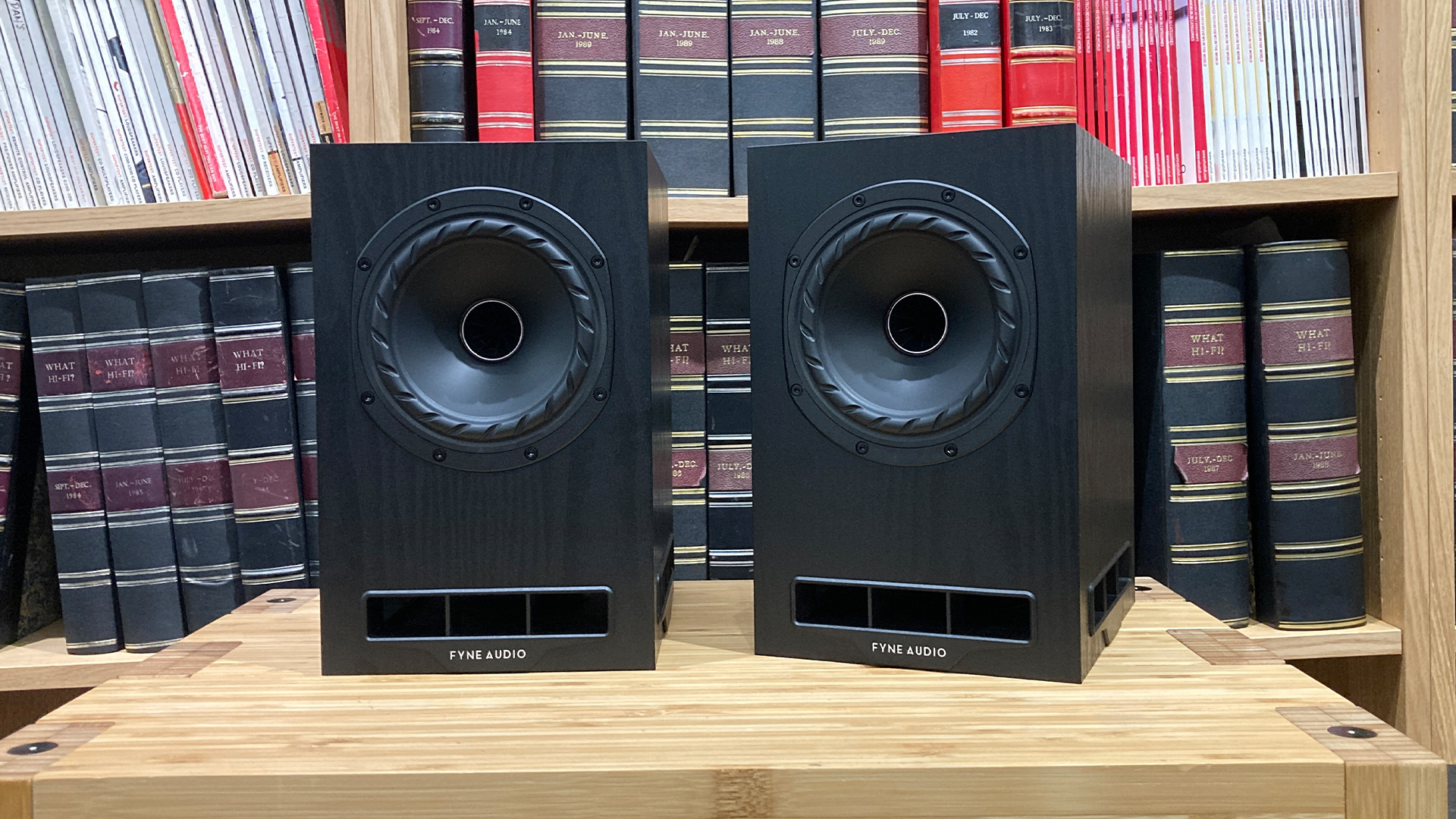We asked our readers how they listen to hi-res music, and they have one major priority
How many ways to listen to hi-res? Let us count the ways...
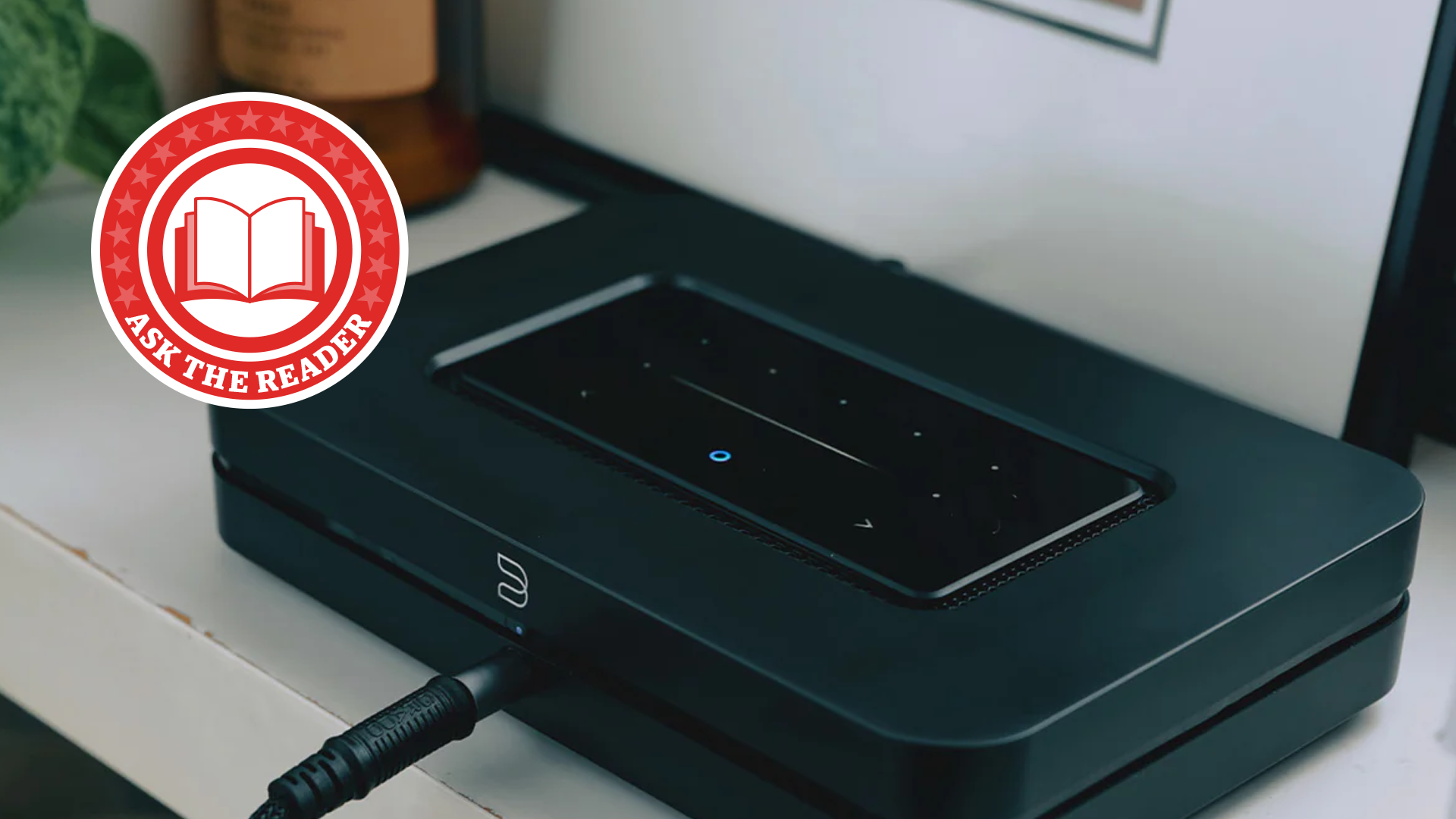
A month ago, we asked our readers how you listen to hi-res music in your hi-fi system? Do you exclusively use streaming services, or do you buy and download hi-res files?
Overwhelmingly, your answers indicated a combination of the two methods, with owning music being a huge priority.
With so much choice available in how to stream music – Apple Music, Amazon Music, Qobuz, Tidal – these days, as well as various download sites available (Bandcamp increasingly gets a mention), we found that our readers use a variety of different listening methods available today that suits their needs, preferences and ethos.
Many of you use streaming as a complement to CDs and vinyl – proving that you don't have to choose a side in any format war – while others have eschewed physical formats entirely in favour of hi-res streaming or digital downloads.
The most common thread throughout, however, is the importance of high-resolution sound quality, as well as being able to own the music you buy. It's a sentiment we agree with entirely.
Owning music you love is the priority
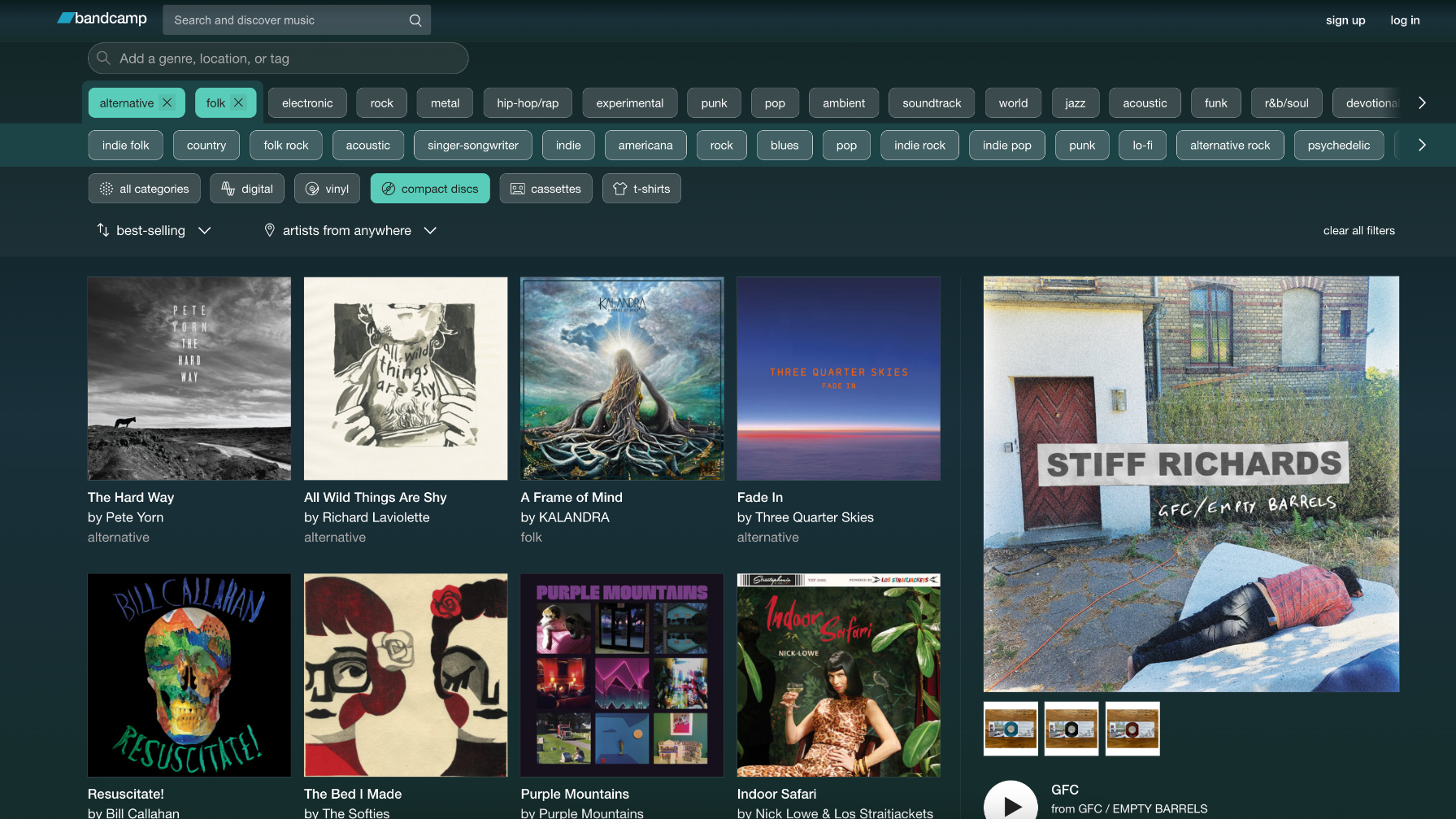
Forum member Cork says: "I listen to hi-res for music that I think was well recorded, typically music recorded relatively recently. I like to own the music, so I purchase CDs for non-hi-res and primarily use HDTracks for hi-res (occasionally I use Bandcamp). FWIW, I'm very happy with HDTracks because I *am* an older listener who likes jazz, classical and "dad rock". I like to listen to an album once before I purchase it, so I use Tidal to check out albums; I listen to Tidal's hi-res version if one's available."
Simon Broch says: "I listen to a lot of hi-res music which I store locally on a Bluesound hard drive connected to my hi-fi system. I don't use streaming services as I much prefer to own my music."
The latest hi-fi, home cinema and tech news, reviews, buying advice and deals, direct to your inbox.
"I am downloading more frequently from Bandcamp where I can stream most of my favourite new music.... I also like to buy music in a way that best rewards the artists."
We have to say we agree with Adam Ranson's position, especially as a frequent user of Bandcamp to discover and support artists directly.
MusicSloth says they would consider streaming if the monthly subscription fees were lower for "essentially "borrowing" music", and is sticking to digital FLAC downloads for now, also citing how external storage devices and hard drives are cheaper to buy these days.
We like his mantra: "Pay once, listen as often as I want to."
Combining streaming for music discovery and then buying downloads
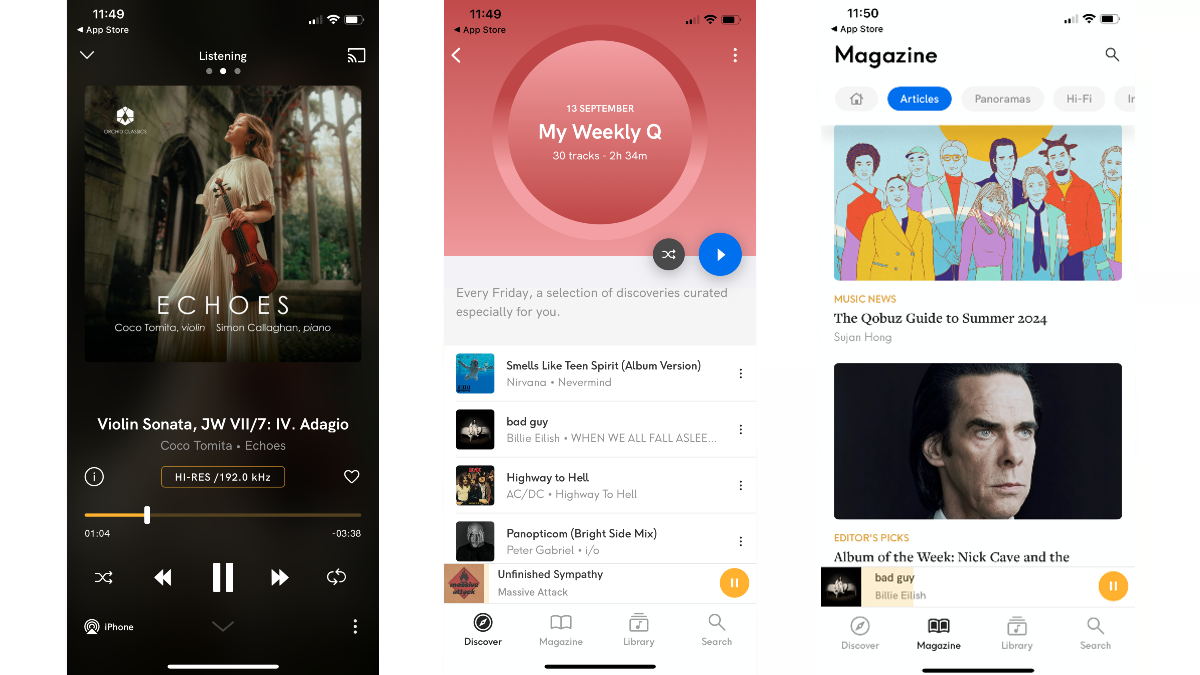
Many users simply use streaming services like Tidal and Qobuz for music discovery, and then buy and download the digital hi-res album on HDTracks, Qobuz Store or Bandcamp to own the album permanently.
"Both. I purchase, mainly from Bandcamp, and stream via Tidal," says Forum member hootywwfc.
ruffian22052 does the same, but with different services. "I’m listening to music via Apple Music in the highest quality available, but when I find an album I really love, I’ll buy it from Qobuz in whatever the highest res version I can find. That way, I’ll have all my favourites, and an extensive CD collection (which I’m ripping slowly to my NAS), to keep me happy if I ever have to give up my Apple Music subscription."
A commenter on Facebook reinforces their preference for owning music they love. "I use streaming services to audition music, then buy a lossless digital copy to have and hold in my own home storage whenever I find music I genuinely love. I don't want to be at the mercy of shifting licensing agreements when it comes to the core collection of great music."
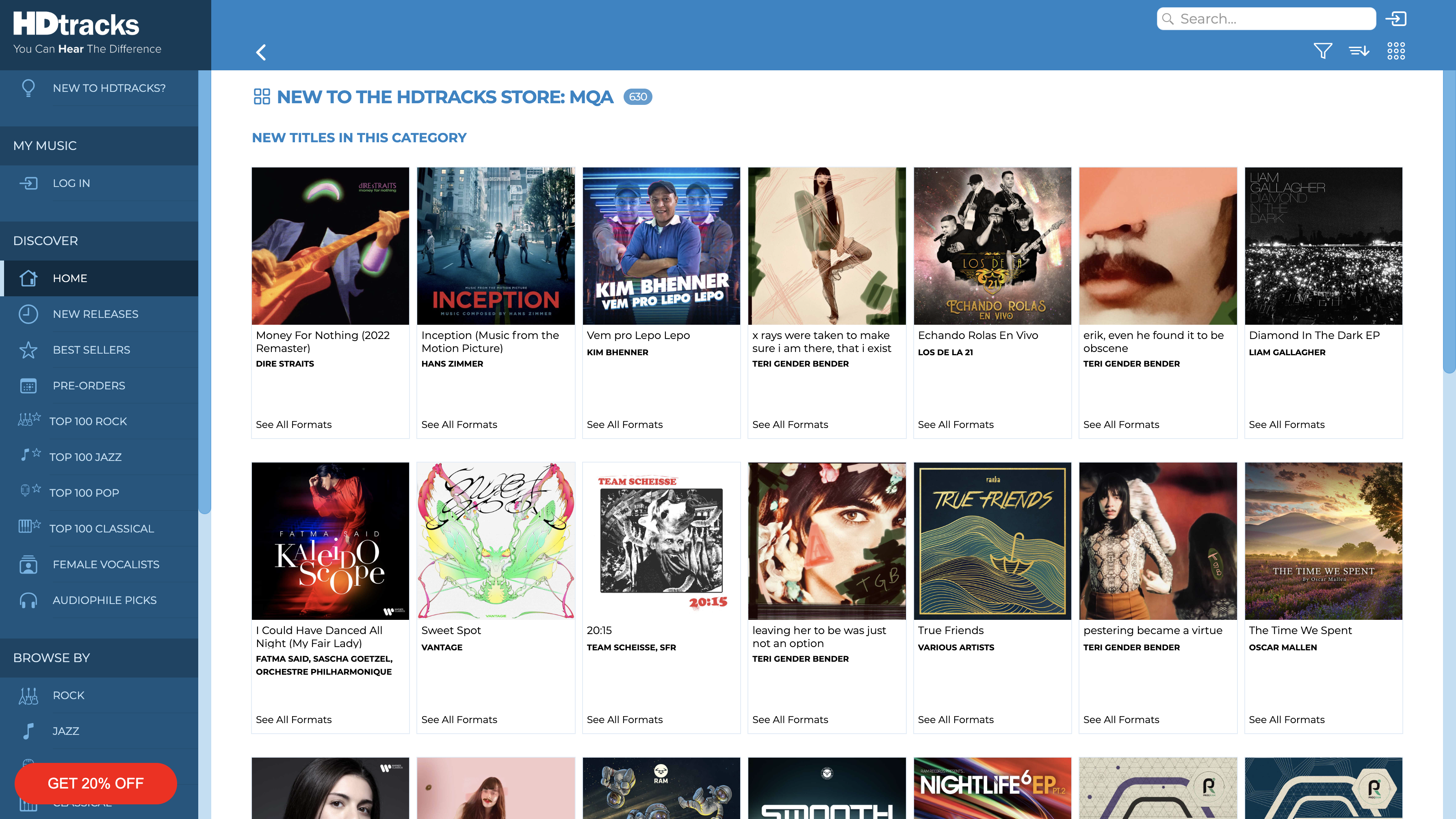
Fellow member busb echoes the sentiment about owning music and paying artists fairly, but issues a warning about disappearing downloads: "Until a couple of years ago, I'd say that streaming was my favourite option – renting rather than buying. Using iTunes has enabled me to locally cache a huge amount of music including classical & individual songs.
However, differences in SQ [sound quality] aside, dozens of tracks and/or whole albums suddenly become unavailable, despite downloading them. "This song is no longer available in your region." Others may be able to explain the whys, but there's no technical reason music can't effectively be available forever – you don't need to make another batch of CDs or LPs! If I "buy" music, I don't own it but do have the right to listen to it – you don't get home to find some CDs or LPs are missing.
I do agree that equitable payment needs to be sorted out but politics seems to be intervening. I'd say to anyone thinking of streaming: be aware that your favourite music may suddenly be unavailable!"
Sticking to streaming or download exclusively – but sound quality remains important
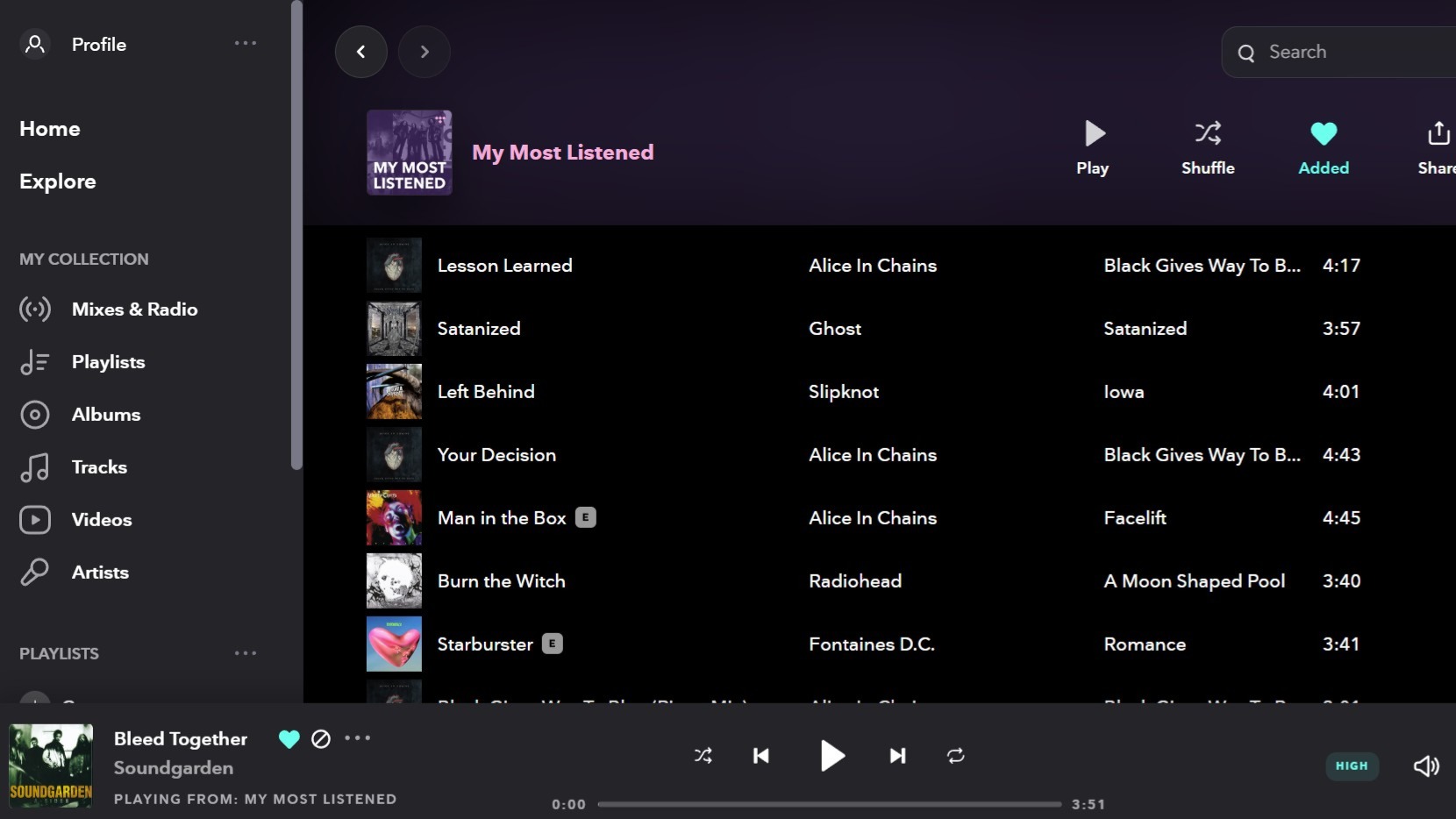
And of course there are those that exclusively use one method.
"I stream via Amazon Music Unlimited using the Alexa app; would not be without it now," says DREADZONE.
"For me it is internal streaming, I download the album or track to my Server / NAS and stream to my Linn streamer. I don't use any of the streaming sites to stream music." - michael hoy.
"Almost exclusively streaming," says a Facebook commenter. "Saves getting out of the chair to change the disc!"
"I am a dedicated downloader," says James McWilliams, "having abandoned streaming a couple of years ago. Qobuz is my download site of choice. It has a great selection of keenly priced jazz and classical music in its BNF collection and there are regular sales and special offers. I rarely download Hi-Res as, to be honest, I can't detect a difference relative to CD quality. I see the main advantages of downloading relative to streaming as being ownership and the ability to listen offline."
Many have embraced the convenience that streaming brings, after a lifetime of collecting physical music. "I am just streaming. Tidal and Apple Music are my streaming services," says Welzar. "Streaming Hi-Res and CD quality sounds as good or better than my CD collection without all the hassle of dealing with CDs."
For those who ripped their CDs back in the day and now combine them streaming, Joe_Christmas says that using a third-party platform like Roon has transformed the way they listen to all their music, both streamed and stored locally.
"I mostly listen to hi-res music streamed online through the Bluesound ecosystem – mostly Tidal, though I have a Zen Innous for all my old CDs. I don't download from Tidal/Spotify and have never really had an issue with disappearing tracks or albums – I mostly listen to jazz/folk/Americana.
A game-changer for me was Roon, which allows for the proper integration of both my sources – being able to create a playlist from a mixture of Tidal and my own CDs is tremendous, and its player functionality is significantly better than Tidal, Spotify and Bluesound."
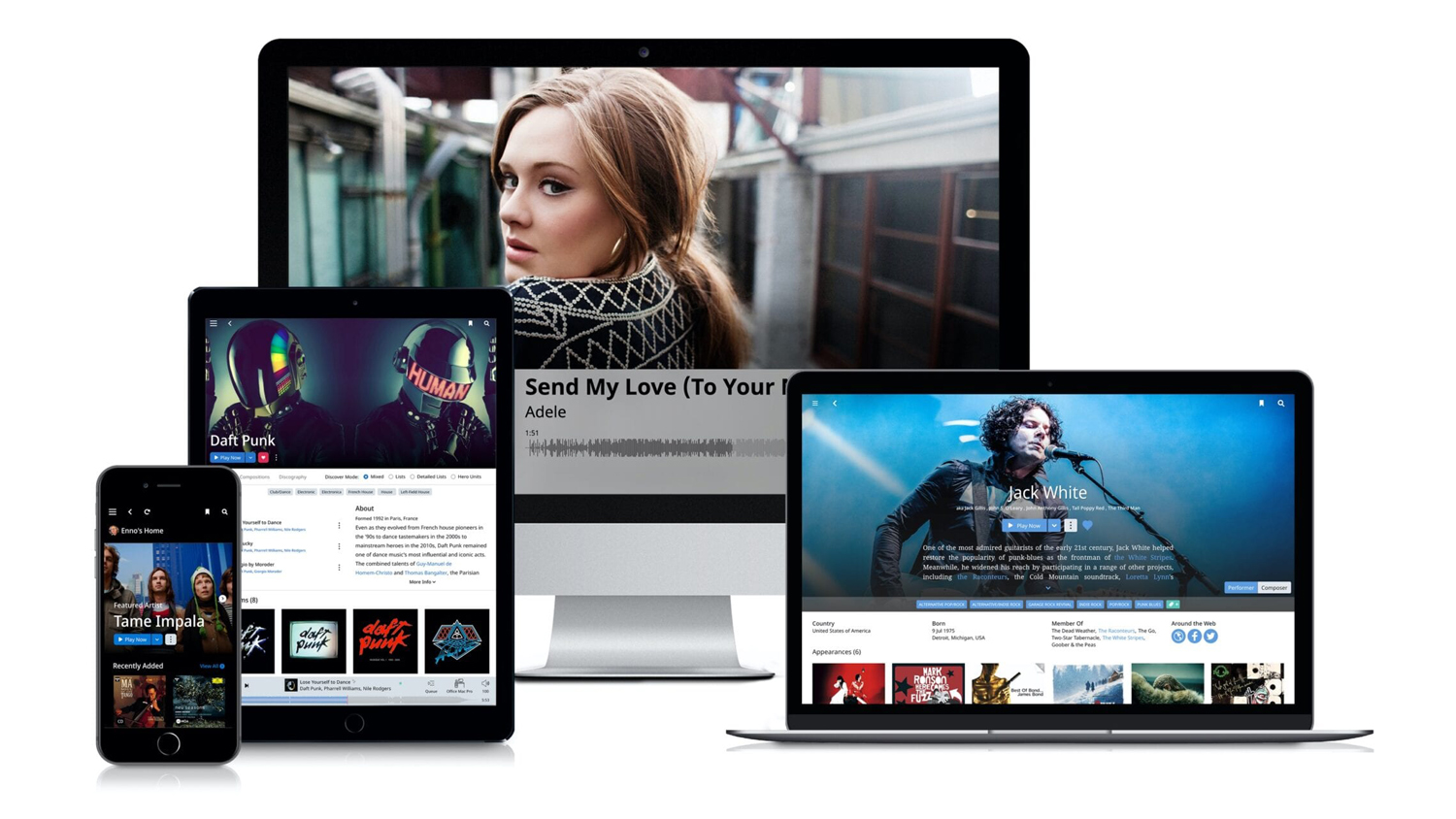
Many users have confirmed lifetime subscriptions for Roon that they use in conjunction with a Tidal subscription and a NAS drive full of stored CDs. But many have gone streaming only, with commenter Alex now "instead preferring the Tidal versions rather than what I have ripped on a PC and stored."
There was a lot of love for Tidal and Qobuz in particular for their sound quality. Richard Ridgeway streams via Qobuz as "they only stream CD or better audio," while AndyC405 prefers Tidal "primarily for the hi-res stream quality and because I'm concerned about what the artists earn."
We had two shoutouts for something a little bit different.
Commenter GRPR has a particular focus when it comes to streaming: "It's all about Dolby Atmos from a streaming perspective. Apple Music on an Apple 4K TV. I have enough stereo and surround titles on my own music servers, which is around 42 TB at this point. It's the new releases in Atmos that I want to use streaming for."
And brandavon shows love for the niche Blu-ray Audio. "Tidal, SACD and Blu-ray Audio" are their preferred formats. "Blu-ray Audio should've taken off instead of vinyl having a restore. I use Tidal the most as there's never been enough SACD and Blu-ray Audio discs."
Streaming as a complement to vinyl and CD listening
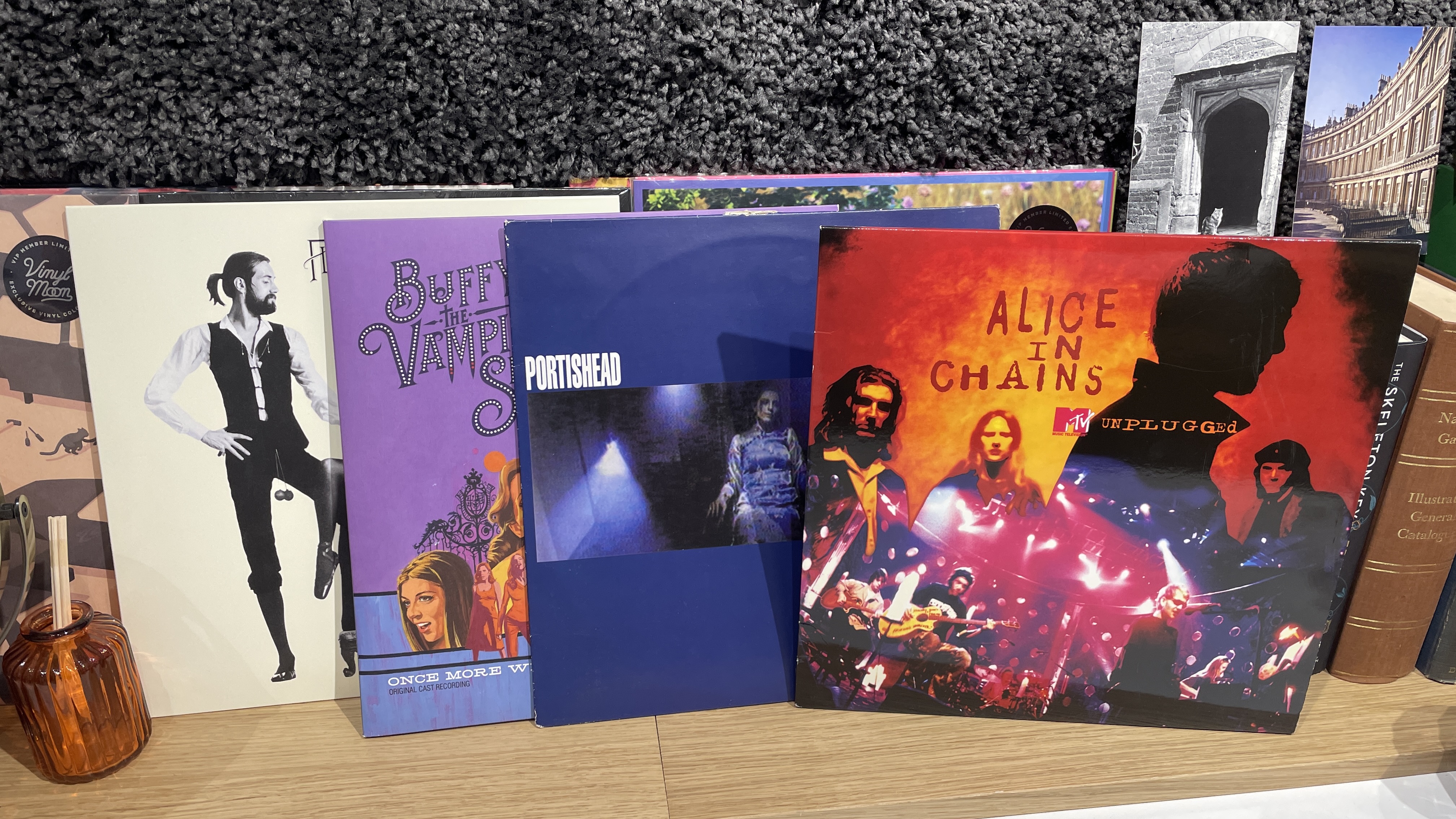
Many users also mix up the streaming discovery with the physical formats like vinyl and CD, stating how owning and listening to music on a physical unit is more emotionally involving than a digital file.
Forum member mavplace64 says: "I grew up in the age of vinyl, then converted to CD and have returned to vinyl about 15 years ago. So vinyl is my main source for music purchases and preferred way to listen to music. About 4 years ago I set up a streaming system with a streamer and DAC using Tidal and Qobuz, this I use only really to discover new music but still stream at the highest quality I can.
Storing and purchasing downloads has never interested me as there is no emotional involvement for me. Maybe being of a certain age and listening to an album rather than individual tracks means streaming and downloading will never be for me."
Chris_Horner plays records when it's all about sound quality, but uses streaming for its convenience and ease – for instance, as background music when they are cooking, have people over, working on something or just want it to be easy without having to deal with flipping an LP.
"Different sources for different priorities," he wisely says – something that plenty of us can identify with in how we listen to music these days.
And we have to salute eduard, who has spent a lifetime enjoying hi-fi and buying music. Bitten by the 'hi-fi virus' at 14 and using a tape deck to record vinyl from friends and the local library, eduard has now discovered streaming at age 65, upgrading their entire system and enjoying the vast amount of music at their fingertips and how easy it all is to use a tablet compared with putting on a CD or vinyl...
"I am not only pleased by the sound quality – I agree there will always be the dream of a next higher level – but especially by the hundreds of new discovered albums and artists, I never would have discovered when I had to buy those music."
A happy convert, indeed.
A happy coexistence – but things could be better?
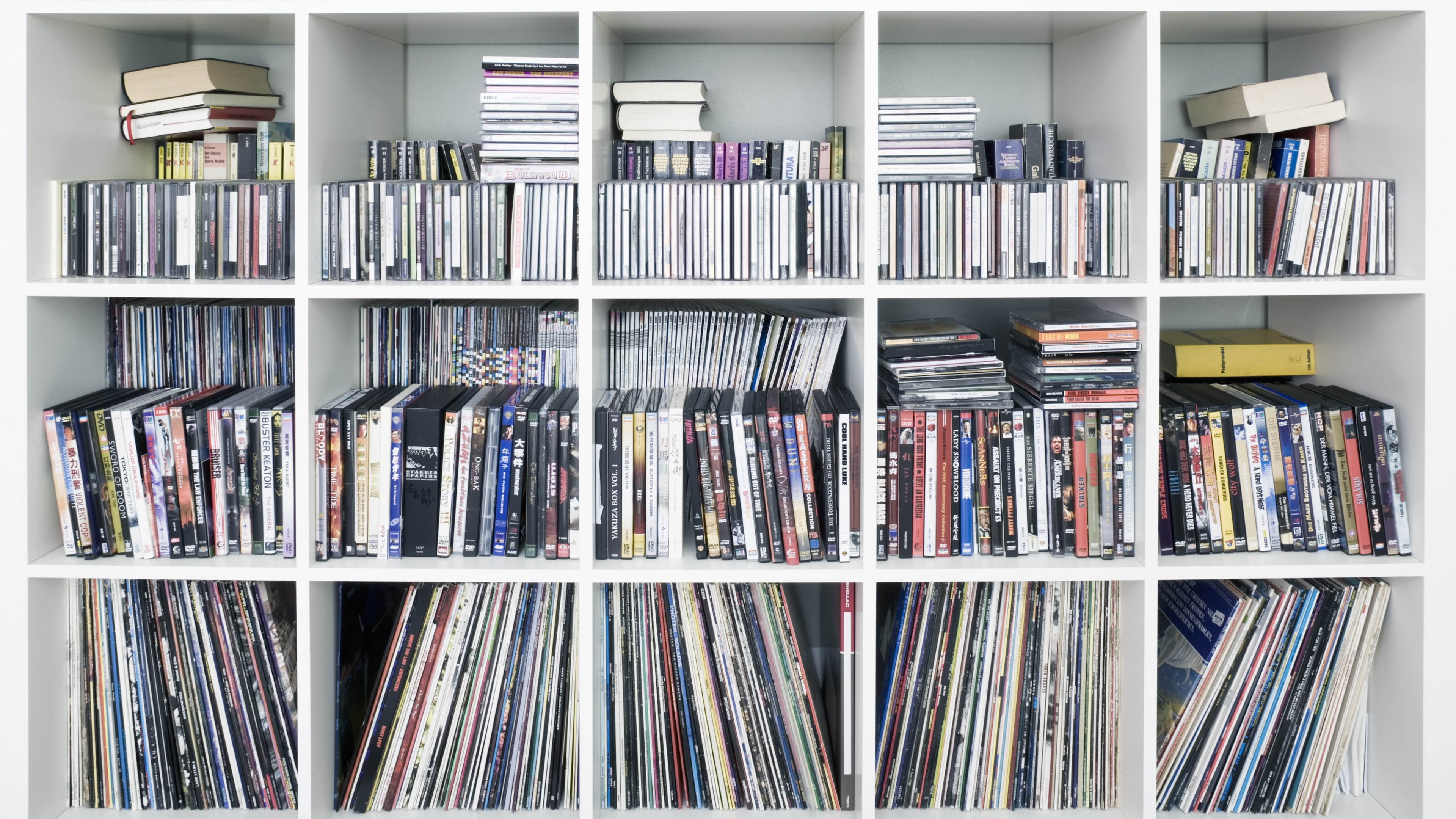
Unlike the format wars of the past, it's clear that there are so many options and permutations to hi-res streaming and downloads these days, that there really is no one answer. The prevalence of better than CD quality and hi-res audio being available both as digital downloads and on popular streaming services means that we now have greater access to high quality music than ever before.
And they can all happily coexist together. Sticking to just one type of listening feels like a rarity, as our readers show how streaming, downloads and even CD and vinyl can all be part of your hi-fi ecosystem. Streaming as a music discovery tool to then buy the albums you enjoy is a common theme – in fact, we are struck by how strongly many of you felt about owning music you buy and how important this was, rather than 'renting' music, alongside ensuring artists are paid fairly.
Our What Hi-Fi? readers obviously care about sound quality, so it's no surprise that this is a top concern, with most of you perfectly happy with the hi-res quality on offer via streaming or downloads.
However, some of you noted how hi-res Masters on streaming don't necessarily sound as good as they could be...
MattJKing71 writes: "The quality of many Masters are often so poor that Hi Res can barely shine. Qobuz and Tidal had some good masters but not the range (a 16-bit/quality compression is why I've held out for Spotify to go Hi Res and will download to play at home offline to avoid streaming glitches."
davidbix also queries the mastering quality. "So much hi-res stuff that's out there isn't done that well. For brand new releases, they'll use the same mastering steps from the CD-quality version even though the hi-res audience obviously doesn't want the kind of dynamic range compression that's long been too common... It's rare that I'll find a hi-res title that matches or exceeds both the vibes and perceived sonics of a good vinyl pressing, so I don't go back to it as much as I'd like.
It doesn't help that a lot of the best hi-res releases are SACDs that aren't legally available to stream. (Whether in-print or otherwise, often from speciality reissue labels like Mobile Fidelity, Analogue Productions, Intervention Records, or Impex.) So listening to them in a more convenient fashion requires jumping through a lot of hoops."
There's always room for improvement, as the chase for ultimate hi-fi sound is never-ending. But it looks like the majority of you are enjoying music in the variety of ways that are available today, finding a happy balance between them all.
Thank you again to all our readers who commented and shared their opinions.
MORE:
Hi-res music streaming services compared: is Tidal, Qobuz, Amazon or Apple Music better?
Our pick of the best music streamers across all budgets

Kashfia is the Hi-Fi and Audio Editor of What Hi-Fi? and first joined the brand 13 years ago. During her time in the consumer tech industry, she has reviewed hundreds of products (including speakers, amplifiers, turntables and headphones), been to countless trade shows across the world and fallen in love with hi-fi kit much bigger than her. In her spare time, Kash can be found tending to an ever-growing houseplant collection and shooing her cat away from spinning records.
You must confirm your public display name before commenting
Please logout and then login again, you will then be prompted to enter your display name.
